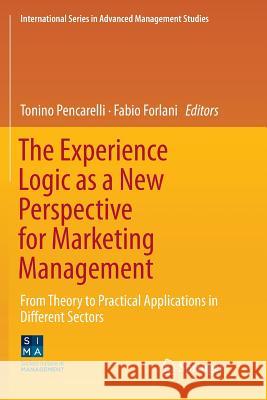The Experience Logic as a New Perspective for Marketing Management: From Theory to Practical Applications in Different Sectors » książka
topmenu
The Experience Logic as a New Perspective for Marketing Management: From Theory to Practical Applications in Different Sectors
ISBN-13: 9783030084783 / Angielski / Miękka / 2019 / 220 str.
The Experience Logic as a New Perspective for Marketing Management: From Theory to Practical Applications in Different Sectors
ISBN-13: 9783030084783 / Angielski / Miękka / 2019 / 220 str.
cena 462,91
(netto: 440,87 VAT: 5%)
Najniższa cena z 30 dni: 443,35
(netto: 440,87 VAT: 5%)
Najniższa cena z 30 dni: 443,35
Termin realizacji zamówienia:
ok. 16-18 dni roboczych.
ok. 16-18 dni roboczych.
Darmowa dostawa!
Kategorie:
Kategorie BISAC:
Wydawca:
Springer
Seria wydawnicza:
Język:
Angielski
ISBN-13:
9783030084783
Rok wydania:
2019
Wydanie:
Softcover Repri
Ilość stron:
220
Waga:
0.32 kg
Wymiary:
23.39 x 15.6 x 1.22
Oprawa:
Miękka
Wolumenów:
01











